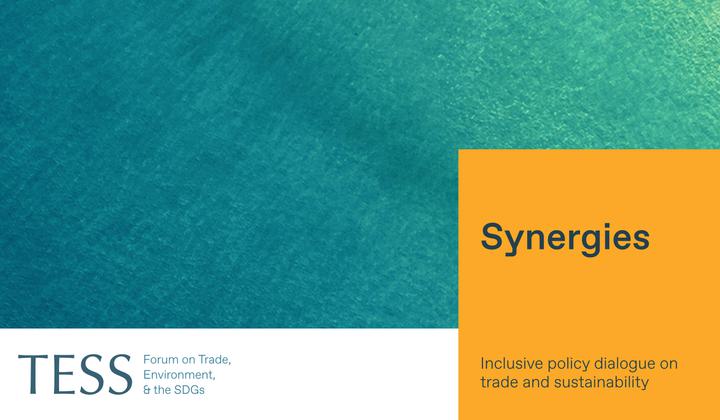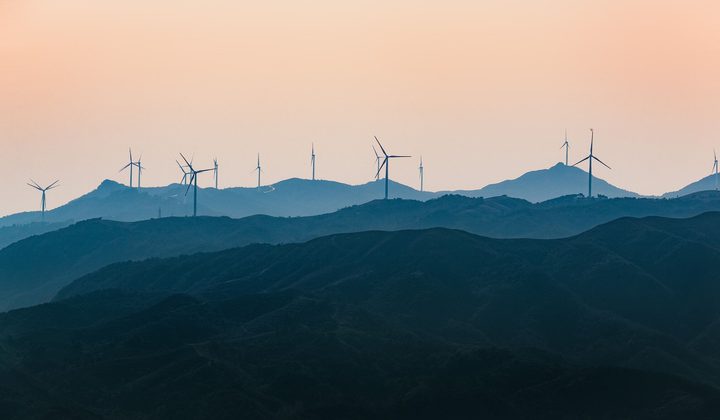This article provides an overview of new trends emerging within and increasingly outside traditional trade agreements in relation to policy action and cooperation on trade and sustainability.
Where is today’s policy action on trade and sustainability?
Surely, a lot of innovations can be found in domestic law. Think the EU’s Carbon Border Adjustment Mechanism and Regulation on deforestation-free products or the US Inflation Reduction Act. The World Trade Organization (WTO) has some initiatives too: the Trade and Environmental Sustainability Structured Discussions (TESSD), the Dialogue on Plastics Pollution (DPP), and the recently concluded Investment Facilitation for Development Agreement which includes provisions on sustainable investment.
That said, surprising and often overlooked innovations can be found also at the level of regional and bilateral (trade) negotiations. At this mid-level range, between the controversial unilateral layer and the often-stalled multilateral WTO, the policy action on trade and sustainability is, indeed, taking interesting new forms and shapes.
Surprising and often overlooked innovations can be found at the level of regional and bilateral (trade) negotiations. At this mid-level range, between the controversial unilateral layer and the often-stalled multilateral WTO, the policy action on trade and sustainability is taking interesting new forms and shapes.
New Trends Within and Outside Traditional Trade Agreements
For many years, starting with the North-American Free Trade Agreement (NAFTA) in the early 1990s, the focus was on one-size-fits-all state-to-state commitments to uphold, for example, minimum environmental and labour standards set out in preferential trade agreements (PTAs). In recent years, new trends have emerged within PTAs and, probably more importantly, a radical shift is happening away from PTAs altogether.
A first set of novelties can be found within recent PTAs, to the extent they are still being concluded (there is a clear drop in new PTAs notified to the WTO). In recent PTAs, the turn is one away from generic state-to-state sustainability commitments towards: (i) firm-level obligations and procedures (for example the Facility-Specific Rapid Response Labor Mechanism included in the United States-Mexico-Canada Agreement (USMCA)); (ii) product or sector-specific provisions (for example, preferential access limited to sustainable palm oil in the EFTA-Indonesia Comprehensive Economic Partnership Agreement); and (iii) provisions proactively tailored to the specific sustainability needs of countries, the major novelty in the EU’s Trade and Sustainable Development review 2022 (for example Maori rights in the EU-New Zealand PTA or Amazon-related provisions in the EU-MERCOSUR PTA).
A second shift is found in deals or discussions that are not PTAs in the first place. Although the EU is doubling down on PTAs, the USMCA may well be the last traditional free trade agreement concluded by the US.
The US-led Indo-Pacific Economic Framework for Prosperity (IPEF) is one example. IPEF is neither a binding agreement, nor focused on trade or market access. If anything, its target is the externalities created by free trade including, very explicitly, sustainability. This is addressed in IPEF’s Pillar II on supply chains and Pillar III on clean economy. In September 2023, the 14 IPEF countries released a new Agreement Relating to Supply Chain Resilience.
Another example of cooperation on trade and sustainability taking place outside of PTAs, in an approach that is less formal, more adaptive and incremental, and solution-focused, is the EU-US Trade and Technology Council (TTC). One of the TTC’s workstreams is the Transatlantic Initiative on Sustainable Trade to promote closer cooperation on jointly advancing the green transition. Another is the Clean Energy Incentives Dialogue to help ensure that EU and US incentive programmes for a clean economy are mutually reinforcing. The TTC also includes the Trade and Labour Dialogue to deepen discussions on the eradication of forced labour from global supply chains. In May 2023, the EU also set up a TTC with India, mirroring much of the topics under discussion in the EU-US TTC.
Finally, and this is a turn in trade negotiations more broadly (think of stand-alone agreements on digital trade or the DPP focused on plastics), a flurry of sector or even product-specific bilateral arrangements on trade and sustainability topics have emerged. The prime example here is that of critical mineral agreements. These bilateral agreements focus on securing access to raw materials such as lithium, copper, or hydrogen (and, where the US is a party, access to US green subsidies under the Inflation Reduction Act), but also include sustainability components. Ongoing negotiations on an EU-US Global Arrangement on Sustainable Steel and Aluminium are another case in point. These negotiations have several objectives (such as addressing overcapacity and trade-distorting practices), one of which is reducing the carbon intensity of steel and aluminium. Any EU-US agreement may be extended to other countries and initiate a so-called “climate club” whereby members of the club (that is, those whose producers reach a certain carbon intensity target) can freely trade steel and aluminium, while “free-riding” outsiders will either be excluded or need to pay a price to enter the club’s markets.
A More Pragmatic and Tailored Approach
The jury is out on whether these novel approaches to trade and sustainability—first within PTAs, and second outside the WTO and PTAs altogether—will be more effective than the old ones. Implications for developing countries may also warrant more consideration. However, what they have in common is a more pragmatic, tailored approach: focused on firms or supply chains rather than states; addressing the peculiarities of specific countries, sectors, or products; and trying to find practical, often informal solutions rather than setting out general, legally binding rules.
-----
Joost Pauwelyn is Professor of International Law, Head of the International Law Department, and Director of the Centre for Trade and Economic Integration at the Geneva Graduate Institute. He is a member of the TESS Steering Committee.
-----
Synergies by TESS is a blog dedicated to promoting inclusive policy dialogue at the intersection of trade, environment, and sustainable development, drawing on perspectives from a range of experts from around the globe. The editor is Fabrice Lehmann.
Disclaimer
Any views and opinions expressed on Synergies are those of the author(s) and do not necessarily reflect those of TESS or any of its partner organizations or funders.
License
All of the content on Synergies is licensed under a Creative Commons Attribution-NonCommercial-ShareAlike 4.0 International (CC BY-NC-SA 4.0) license. This means you are welcome to adapt, copy, and share it on your platforms with attribution to the source and author(s), but not for commercial purposes. You must also share it under the same CC BY-NC-SA 4.0 license.
If you would like to reuse any material published here or if you have any other question related to Synergies, send an email to fabrice.lehmann@graduateinstitute.ch.



